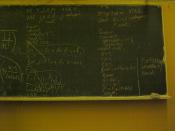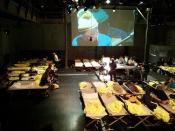Differences in computer languages is a topic that many people are not familiar
with. I was one of those kinds of people before I started researching on this topic. There
many different computer languages and each one of them are similar in some ways, but
are also different in other ways, such as: program syntax, the format of the language, and
the limitations of the language.
Most computer programmers start programming in languages such as turbo pascal
or one of the various types of basic. Turbo pascal, Basic, and Fortran are some of the
oldest computer languages. Many of today's modern languages have been a result of
one of these three languages, but are greatly improved. Both turbo pascal and basic are
languages that are easy to understand and the syntax is very easy and straightforward.
In Basic when printing to the screen you simply type the word 'print', in turbo pascal you
would type 'writeln'.
These are very simple commands that the computer executes. To
execute a line of code in a language such as C, or C++, you would have to type in much
more sophisticated lines of code that are much more confusing than the previous two.
The format and layout of the various languages are very diverse between some,
and between others are somewhat similar. When programming in Basic the user has to
type in line numbers before each new line of code. In an updated version of Basic called
QBasic, numbers are optional. Turbo pascal does not allow the user to input numbers, it
has preset commands that seperate each part of the program. This is similar to QBasic,
but is much more sophisticated. Instead of using the command gosub in Basic, the user
would make a procedure call.
Another new language...



Not bad
You didn't touch upon the actual aspects of each language. Give examples of not only different syntaxes, but different capabilities. You did not mention either what kind of programming language it was, i.e.: Object Oriented (OO) vs. Structured vs. Procedural. Overall a good reference of other languages.
6 out of 6 people found this comment useful.